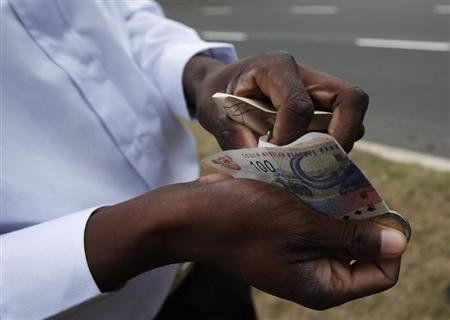G20 Talks Taxes: Why Africa Stands To Gain The Most From Global Tax Regulation Reform

Only the world’s richest countries will be represented at the G20 summit this week in St. Petersburg, Russia, but the gathering could still have profound implications for some of the poorest nations on earth. Beginning Friday, officials there will discuss global tax regulation reforms that, if implemented, could have an outsized impact on sub-Saharan Africa -- even if South Africa is the only regional country included in G20's roster.
"Africa may have only one seat at the G20 table, but it accounts for 14 percent of the global population," wrote former UN Secretary-General Kofi Annan, a Ghanaian, in The Guardian this week. "With a young and rapidly growing population, Africa represents not just the world's largest untapped source of oil, gas, and minerals, but also a high potential consumer market."
Annan is the chair of the Africa Progress Panel, which published a progress report for the continent in May. It found that tax evasion has cut into African citizens' fair share of profits from the continent's abundant resources.
"The Africa Progress Panel finds it unconscionable that some companies, often supported by dishonest officials, are using unethical tax avoidance, transfer pricing and anonymous company ownership to maximize their profits, while millions of Africans go without adequate nutrition, health and education," the organization said in a statement.
Tax regulation is as dull a subject as they come. But reform in that area has the potential to improve millions of livelihoods -- for Africa especially. The continent is wracked by poverty -- 48.5 percent of the sub-Saharan population lived on less than $1.25 a day in 2010 -- which is why billions of dollars of foreign aid pours into its countries on an annual basis. But if illicit outflows and tax-related corruption could be completely wiped out, it would contribute even more to the continent than foreign donors are currently spending.
That staggering fact was revealed in a report this year from the African Development Bank and Global Financial Integrity, a U.S.-based research organization. It found that net resource transfers out of the continent between 1980 and 2009, adjusted for inflation, amounted to between $597 billion and $1.4 trillion. These monies are lost in a variety of ways: embezzlement of funds that are stowed away in foreign accounts, tax evasions enabled by havens like the Cayman Islands or the British Virgin Islands, or purchases of expensive properties outside the continent.
The Africa Progress Report found that taxation losses alone amounted to $38 billion every year.
The issue has lately been the focus of renewed attention, since the problem of tax evasion is global in scope. This July, the OECD launched efforts for an action plan that would lay out stricter rules for contemporary commerce. “International tax rules, many of them dating from the 1920s, ensure that businesses don’t pay taxes in two countries – double taxation," explained OECD Secretary-General Angel Gurría. "This is laudable, but unfortunately these rules are now being abused to permit double non-taxation. The action plan aims to remedy this, so multinationals also pay their fair share of taxes."
When it comes to Africa, Annan recommends that regulations focus on tackling evasive maneuvers like transit mispricing, or fudging the numbers on the true values of imports and exports; organizational obfuscation, which entails using shell companies or multi-layered corporations that make it harder to follow the flow of funds; and a lack of cooperation from African governments, which must be included in automatic information exchanges in order to benefit from reforms.
If taxation could be made more transparent, governments would not only receive more official revenues; they would also be held more accountable for the spending of those revenues. This would help to put a lid on shady behavior in some of the continent's most corrupt administrations -- in Zimbabwe, Kenya and Nigeria, to name a few -- and to encourage governments to spend more on measures to spur broad-based growth, like infrastructure, health care and education.
It would also hinder foreign investors' efforts to extract more profits than they should, which would make it easier for resources -- like Angola's oil, Mozambique's natural gas or Sierra Leone's diamonds -- to effect greater positive change for the general public.
To be sure, tax regulation is no cure-all for a continent plagued by conflict, food insecurity and poverty. But its importance should not be understated; the shady flow of monies and products is a root enabler of myriad problems. But solution cannot come from the G20 conference alone; it requires participation from African governments and civil society groups.
"With increased connectivity and education, Africa has lost its tolerance for exploitation by the rest of the world," said Annan. "Africa's people expect a fair share of the wealth beneath their soil and territorial waters."
© Copyright IBTimes 2025. All rights reserved.





















